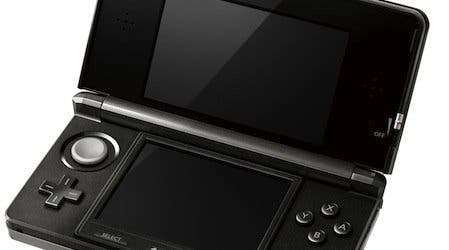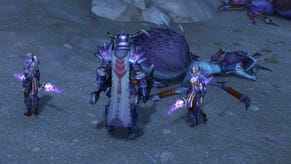Nintendo 3DS has "turned the corner"
Analysts hail resurgent handheld, note Vita lessons.
The Nintendo 3DS has "turned the corner" following a shaky launch and early price cut, so says games industry analyst Michael Pachter.
Following news earlier this week that the system has passed the four million sales mark in the US faster than the Wii did, the Wedbush Morgan mouthpiece told Eurogamer that, though he was surprised the system didn't take off at its original pricepoint, sales are now well and truly back on track.
"It's very successful, but ran into a headwind given its relatively high price - which I incorrectly thought was the right price - and lack of third party software support," said Pachter.
"Now that we are seeing more first party titles at a lower price point, sales have increased. It's definitely turned the corner."
"I was surprised that it sold so few at the $249 price point, and its sales to date are exactly what I originally forecasted at that price," he added.
EEDAR VP Jesse Divnich agreed that Nintendo's handheld has ridden out the early storm, though added a note of caution for the future.
"With the strong rebound in 3DS sales, I think Nintendo is clear of the woods for now," he said.
"Going forward, however, we will closely be paying attention to software attach rates. Selling hardware is great, but it is only the first step. The health of any hardware is directly correlated to the amount of software consumers buy.
"The 3DS's slow start surprised us all, but once they announced the steep price cut we had little concerns that they would rebound," he added. "At such a great price, backed by strong first-party content, it shouldn't be of any surprise they were able to turn the corner."
Screen Digest's Piers Harding-Rolls also warned the platform holder against complacency following its bumper festive period.
"2012 will be crucial for the platform, as its sales momentum will decide how third-party investment in content development will be prioritised," he said.
"We expect the 3DS to continue selling, but Nintendo faces an increasingly competitive landscape and the hurdle of convincing third-parties to invest in the platform."
All three agreed that it's unlikely the system will manage to catch the DS's lifetime total, which currently sits at around 150 million worldwide.
"I think anything catching the Nintendo DS will be incredibly difficult," opined Divnich.
"The key to catching the Nintendo DS would be appealing to the ultra-casual consumers, those who originally bought the Nintendo DS for games like Brain Age and Sudoku, which are now prevalent and cheaper on other platforms - tablets and mobile.
"But I don't believe topping DS sales is Nintendo's goal for the 3DS. Their goal, however, is to create a sustainable and healthy third-party environment which, as I alluded to earlier, means having high software attach rates that are generally driven by the core audience."
Pachter agreed that the rise of the smartphone makes emulating the phenomenal success of the DS a tall order.
"The emergence of smartphone games is eroding the casual market's support for dedicated gaming devices, and I'd guess that 30 per cent or more of DS sales were to casual gamers. That makes it tough to compete," he said.
"At the high end, we have renewed competition from Sony with PS Vita, so they should nibble away at the hard core, leaving Nintendo an addressable market for 3DS that is around 60 per cent as big as the addressable market for DS."
When asked, in the run up to the Western launch of the Vita, what lessons Sony can take away from the 3DS's rollercoaster first 10 months on shelves, Harding-Rolls replied:
"It's important to launch with a strong set of games, strong connectivity functionality, familiar social features and well integrated online platform, and at an aggressive price point.
"Under current economic conditions and taking into account competition from other types of portable/mobile devices, my own feeling is that PS Vita pricing will be the biggest sticking point for the platform in the post launch period months."
Pachter echoed those concerns over the Vita's £229 price tag.
"Sony is probably learning the hard way that pricing handhelds at the same level as the company's core console makes it hard to gain traction," he said.
"The 3DS tried and failed, and PS Vita is trying the same thing. We'll see if it works this time.
"My bet is that Sony will NOT lower the price right away - as Nintendo did - mostly because the 3DS had a pretty healthy profit margin at $249, and I think that the Vita is selling for only slightly above its cost to manufacture at that price.
"I don't see Sony taking losses to drive market share, so I don't expect them to cut price in 2012."









